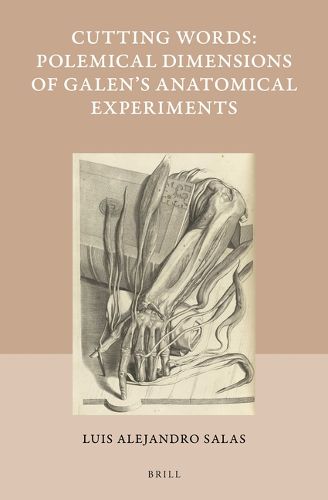Readings Newsletter
Become a Readings Member to make your shopping experience even easier.
Sign in or sign up for free!
You’re not far away from qualifying for FREE standard shipping within Australia
You’ve qualified for FREE standard shipping within Australia
The cart is loading…






In Cutting Words: Polemical Dimensions of Galen’s Anatomical Experiments, Luis Alejandro Salas offers a new account of Galen’s medical experiments in the context of the high intellectual culture of second-century Rome. The book explores how Galen’s written experiments operate alongside their live counterparts. It argues that Galen’s experimental writing reperforms the licensing functions of his live demonstrations, acting as a surrogate for their performance and in some cases an improvement upon it. Cutting Words focuses on the philosophical targets and theoretical stakes of four case studies: Galen’s experiments on voice production, the bladder, the heart, and the femoral artery. It ends over a millennium later with Vesalius, who adapted his Greek predecessor’s writing in his own anatomical work, framing himself as a new Galen and so securing Galen’s legacy of writing.
$9.00 standard shipping within Australia
FREE standard shipping within Australia for orders over $100.00
Express & International shipping calculated at checkout
In Cutting Words: Polemical Dimensions of Galen’s Anatomical Experiments, Luis Alejandro Salas offers a new account of Galen’s medical experiments in the context of the high intellectual culture of second-century Rome. The book explores how Galen’s written experiments operate alongside their live counterparts. It argues that Galen’s experimental writing reperforms the licensing functions of his live demonstrations, acting as a surrogate for their performance and in some cases an improvement upon it. Cutting Words focuses on the philosophical targets and theoretical stakes of four case studies: Galen’s experiments on voice production, the bladder, the heart, and the femoral artery. It ends over a millennium later with Vesalius, who adapted his Greek predecessor’s writing in his own anatomical work, framing himself as a new Galen and so securing Galen’s legacy of writing.